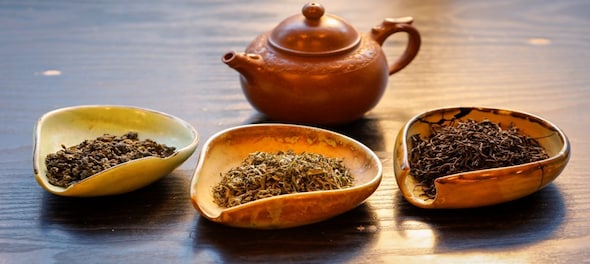
At a time when Indian tea makers are trying to ramp up exports amid falling output from crisis-hit Sri Lanka, consignments from the country are being rejected by some countries due to the presence of pesticides and chemicals beyond permissible limits.
Two countries – Iran and Taiwan – have rejected three containers of Indian tea, citing phytosanitary issues and the presence of pesticides beyond permissible limits, Mint reported quoting two sources. “Two containers have come back from Taiwan and one from Iran. The maximum residue level (MRLs) in Taiwan is too low, and exporters are aware of the risk," an official told the publication.
Why is tea getting rejected?
The MRL is defined as the maximum concentration of pesticide residue that is expected to occur in or on food and feeding material following the use of pesticides as per Good Agricultural Practice (GAP). A trading standard, MRLs help ensure residue levels do not pose risks to consumers. Till now, the Food Safety and Standards Authority of India (FSSAI) has notified MRL for 34 pesticides.
When tested in an independent laboratory, the MRL in the tea consignments from April to mid-May was found to be higher than the limits set by the FSSAI and was therefore rejected by the traders.
An official told Mint that the container that Iran rejected had phytosanitary (measures for the control of plant diseases) issues. “It was not the fault of the producer, but the exporter is to be blamed," the official said.
Reasons behind above-permissible limit pesticides
Indian Tea Exporters Association (ITEA) chairman Anshuman Kanoria told news agency PTI that Indian exporters conform to the FSSAI norms for tea. However, several countries follow variations of the EU standards, which are more stringent than the FSSAI rules.
For chemical quinalphos (pesticide), MRL in India is 0.01 mg per kg, which is one of the strictest standards in the world, a former official of the Tea Board of India told Mint. The standard is 0.1 for Japan and 0.7 for the European Union.
According to exporters, many countries find it tough to export tea to Taiwan because of their strict MRL requirements. Even shipments from Vietnam and China get rejected as they fail to comply with Taiwanese norms.
An exporter said the rejected container from Taiwan came from one of India’s largest tea exporters based out of Kolkata. The company had shipped 600 containers, of which only two got rejected.
Another exporter said China also rejected India’s CTC tea due to the presence of chromium content. Traces of chromium are found in Indian tea because of the use of stainless steel machinery.
How does India make sure tea products are not hit by these issues?
To ensure that the quality of tea is not compromised, the Tea Board visits and inspects various manufacturing units and warehouses at regular intervals. They also collect tea samples to check the quality of tea.
The board does not allow sub-standard tea to be marketed. It also takes strict action against tea makers, including suspension or cancellation of registrations. It can also control orders depending on the extent of the violation.
Indian tea exports in the last two years
During the last financial year, India exported 200.79 million kg of tea, slightly lower than 203.79 million kg in the previous financial year, PTI reported quoting Tea Board data.
However, the value of exports during the last financial year was higher at Rs 5,415.78 crore compared with Rs 5,311.53 crore in the previous fiscal.
The shortage of shipping containers and high ocean freight were reasons behind the marginal fall in exports, sources in the tea industry told the news agency.
Indian tea exporters are hoping to ship out 220-225 million kg in 2022. By 2025, the Tea Board aims to expert 300 million kg of tea annually.
Mohit Agarwal, director of Asian Tea Company, one of the top five tea exporting entities in the country, and a member of ITEA, told PTI that MRL issues in the domestic market do not have any impact on the export front. "All international buyers test our consignments and have not registered any complaint," he said.
What is the Indian government doing?
The Tea Board, which functions under the commerce ministry, has asked tea producers and sellers to strictly comply with the FSSAI quality norms before selling the product, PTI reported. It has also instructed authorities not to release tea consignments from the warehouses if they failed to qualify the FSSAI test parameters.
"A compilation of international laws would restrict usage of almost every pesticide, and there are huge discrepancies in laboratory results, with each stating that results are subject to +/- 50 per cent error margin. In such an environment, a lab failure is more of a legislative rejection rather than a reflection of safety," Kanoria said as per a Moneycontrol report.
Some of India's wheat consignments have also been rejected recently.
Check out our in-depth Market Coverage, Business News & get real-time Stock Market Updates on CNBC-TV18. Also, Watch our channels CNBC-TV18, CNBC Awaaz and CNBC Bajar Live on-the-go!


2024 Lok Sabha Elections | What does a low voter turnout indicate for NDA and I.N.D.I.A Bloc
Apr 29, 2024 5:48 AM
'Borrowed' leaders: Congress hits out at AAP for not fielding their own candidates in Punjab
Apr 28, 2024 9:53 PM
EC asks AAP to modify election campaign song and Kejriwal's party is miffed
Apr 28, 2024 9:25 PM

